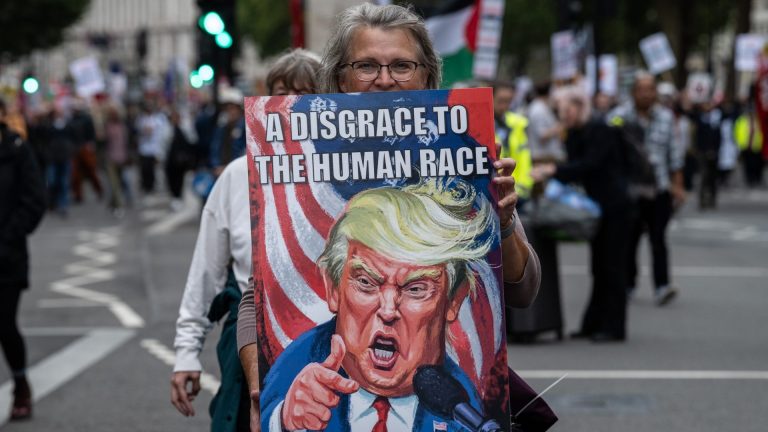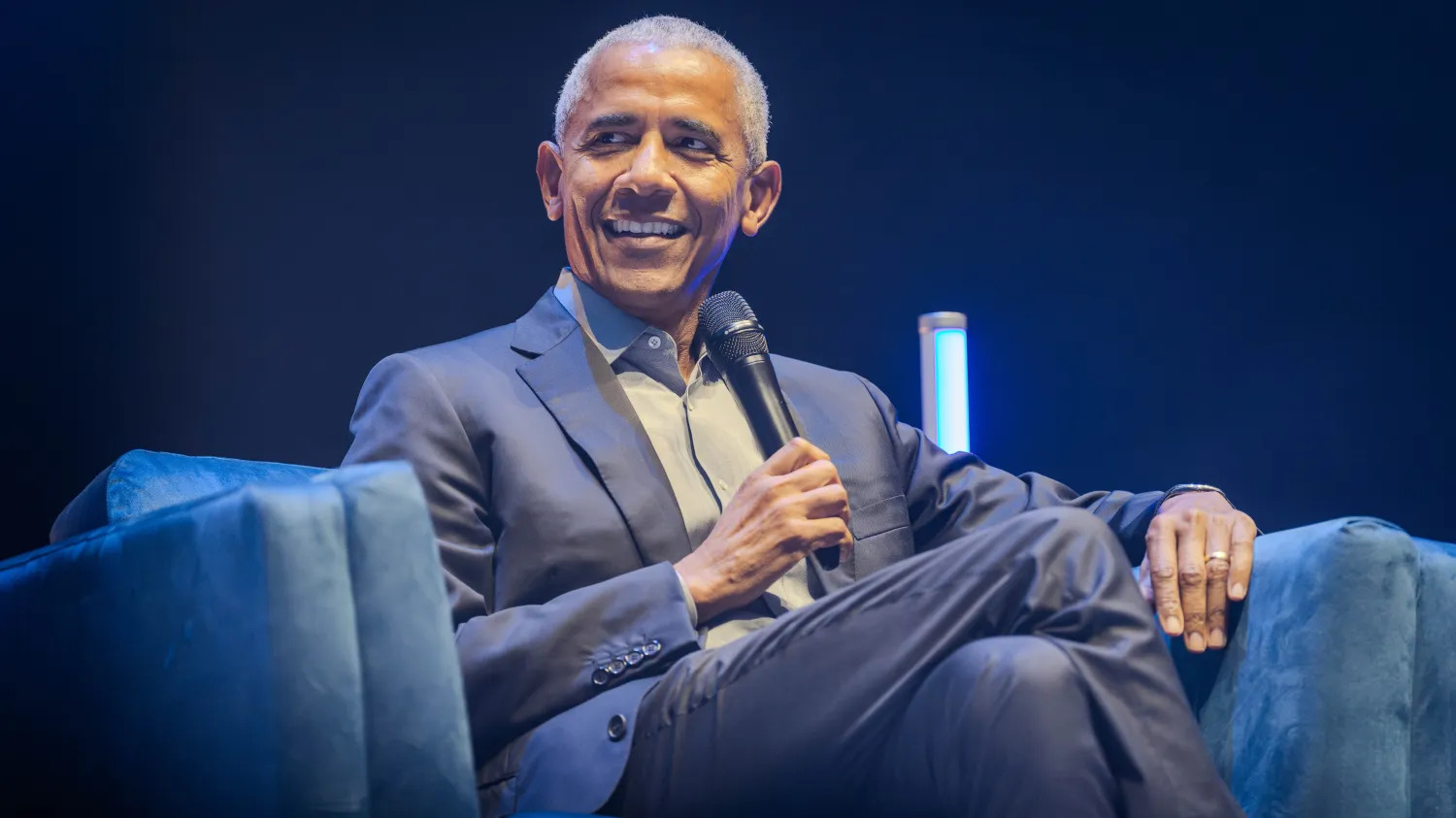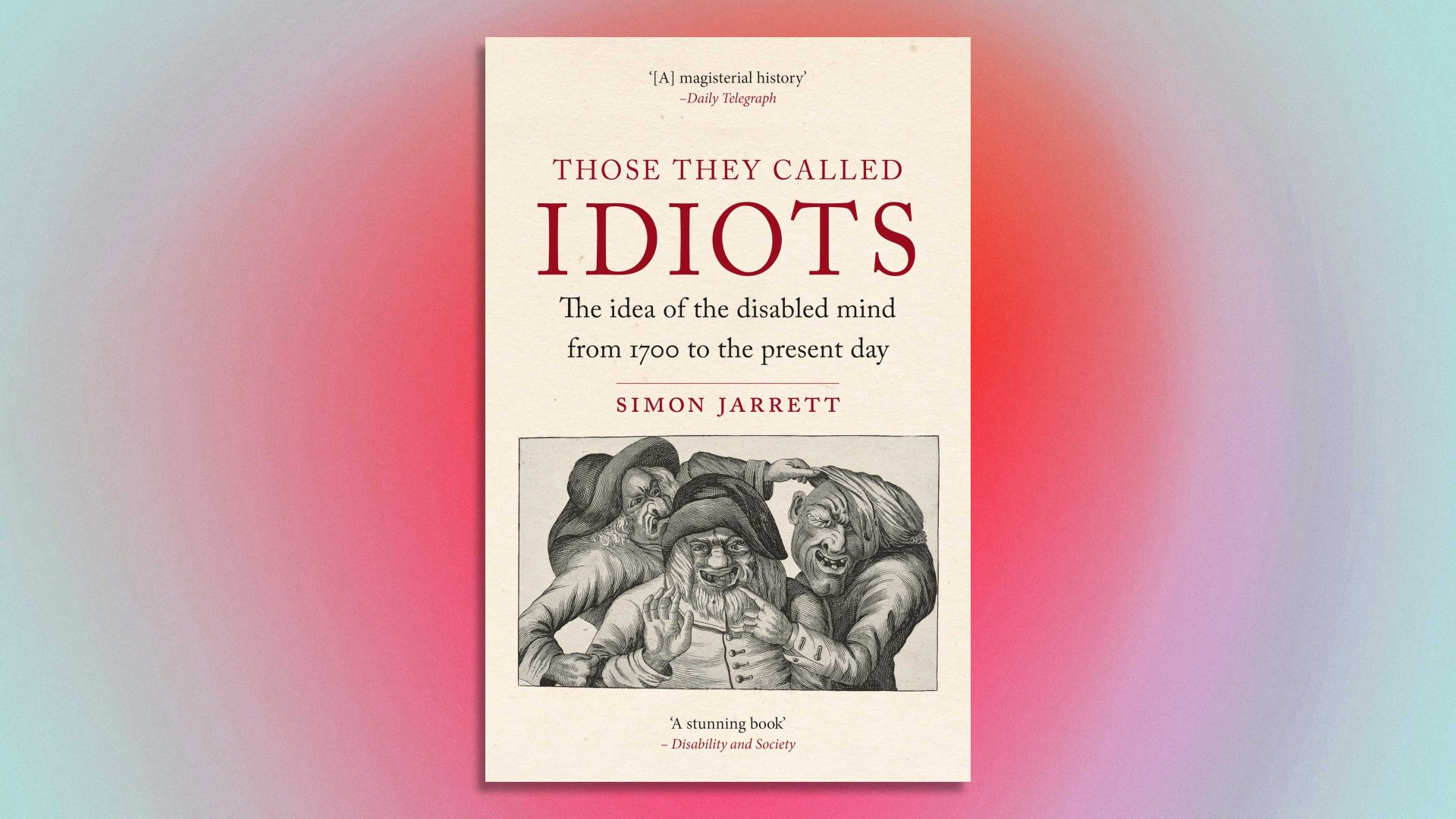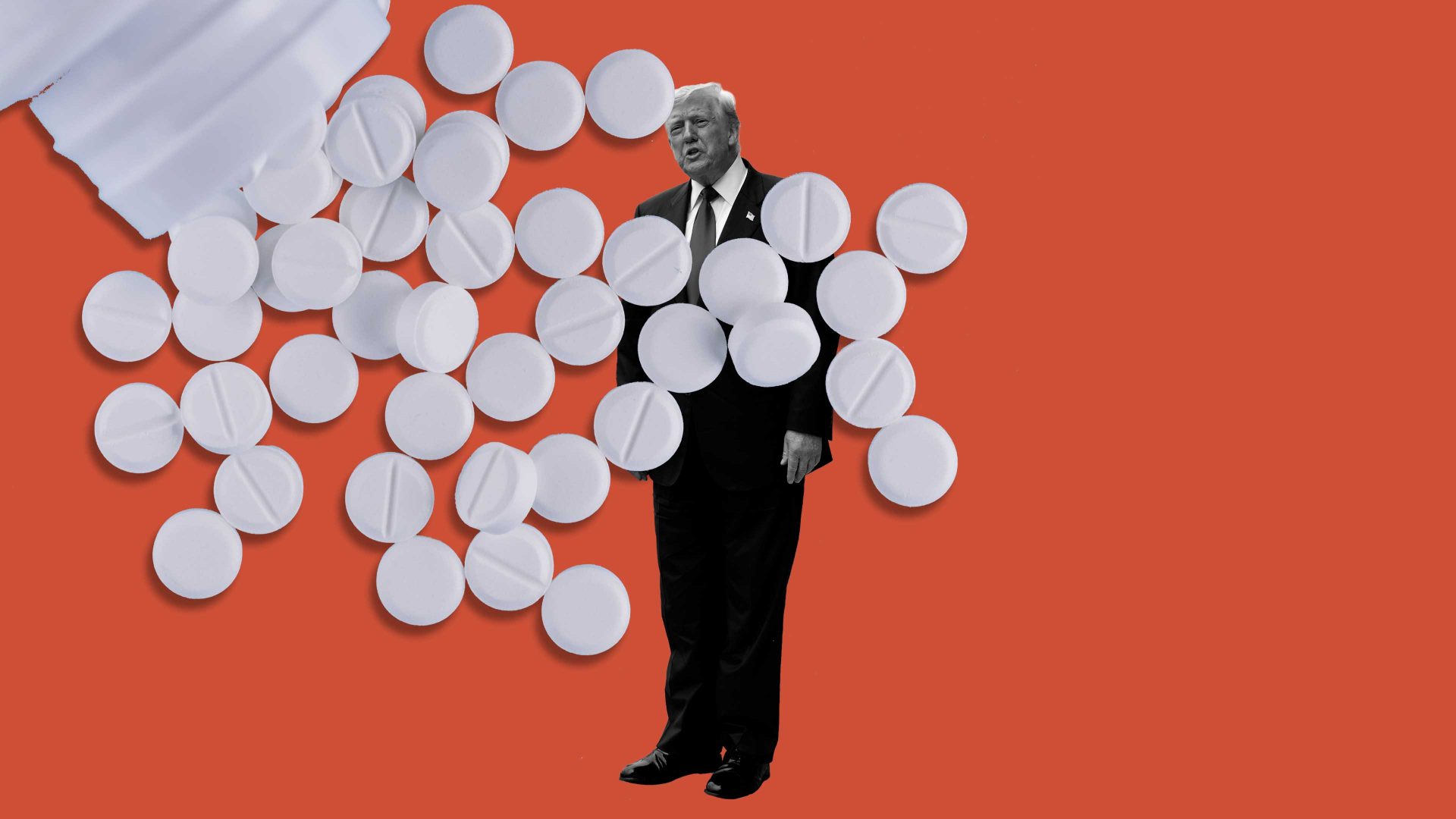“Oh, who are you going to see?” a friend asked when I mentioned I was off to the O2 with my brother. I can’t imagine my answer was one they were expecting from another member of Gen Z: “Barack Obama”. But maybe I was wrong.
As we queued for the event, hosted by historian and writer David Olusoga, the demographics of my fellow attendees were not quite what I had anticipated: people of all races, yes, but also of all ages. Awaiting the 44th president were elderly people armed with their Zimmer frames but also bright-eyed students, some as young as, I guessed, 18. They would have been just hitting double-digits when Obama left office, toddlers when he began his two terms. His legacy has clearly trickled down.
Then again, my brother, who is 21, was keen to go. I remember watching the news with him in the kitchen the morning after Obama won the 2008 presidential election. I naively declared that this could change the world (forgive me, I was 11). He, in turn, continued to slurp his cereal.
In May, I took my dad to watch Bryan Adams at the O2 and, although we were fairly late, we waltzed straight through security. This time could not have been more different. With tickets ranging from £86 all the way up to £1,799 (which granted you a signed photo and unlimited drinks, though not with Obama), lines stretched back to the North Greenwich tube entrance. By the time we’d all filed in, the start time had been forced back by 15 minutes.
Once we found our seats, we noticed the woman to my brother’s left was continuously snapping photos. It was an apt nod to Obama’s status as, as he would later remark, the first digital president, once being the most photographed and videoed man in the world. The couple to my right, meanwhile, hummed in agreement to the vast proportion of his remarks.
“Hello, London,” Obama smiled when he first walked on stage. Of course, we ate it up, and he was met with a 14,000-strong standing ovation and glare of smartphone flashes. Earlier that day, Donald Trump had claimed that Sadiq Khan had changed the city and wanted to place the capital under Sharia law.
Olusoga threw the former president a gentle warm-up question (what had he been doing for the last eight years?) before turning the focus onto the state of the US. In the last few years, or even weeks and days, we’d seen an America that many of us no longer recognise, Olusoga began, before drawing specifically the rise of political violence, hinting towards the assassination attempt on Donald Trump and the murder of Conservative activist and founder of Turning Point, Charlie Kirk. So, how did we get here?
Suggested Reading

At the anti-Trump rally in Westminster
We waited breathlessly for the answer, and it was at this moment that Obama’s microphone cut out. It was hard not to laugh at the irony – one of the greatest communicators of our time, rarely speechless, silenced by our technological ineptitude.
Ever the politician, when his microphone had turned back on, Obama resisted drawing on specifics, offering a broader, moralistic answer on how we respond to those who disagree with us and how those in power trick us into a headspace of blame. The rest of the evening broke down topics from the rise and fall of social media to the dangers of AI, pausing for intervals of rapturous applause. At times, it was hard to determine if the enthusiasm was for the content of Obama’s words or for the fact that he was the one saying them.
“Society,” he said, is like “talking to your grandpa”. It’s just very set in its ways, but if we persist, it’ll get there. Despite myself, I felt a glimmer of hope.
The most remarkable part about the evening was that Trump’s name was not uttered once. The first time, Obama referred to him as “his successor” felt like a civil address, but by the third, the message felt more pointed. For once, this evening was not to be about the sitting president.
Instead, he loomed as an elephant in the room when Obama lamented that America had an administration falsely linking autism and Tylenol. “I think it’s fair to say,” he paused, “that 80% of the world’s problems” are caused by old men who fear death and won’t let go.
As I left the event, I couldn’t help but be reminded of a conversation among the TNW editorial team a few weeks ago. The news was bleak and, as a result, so were our journalistic topics. Essentially, where was the hope?
It would be too easy, simplistic and even naive to suggest that it could be found inside the O2 that evening, especially when considering that even Obama didn’t have all the answers. Still, it was the closest I’d felt to something resembling hope in a long time.
Then the lights came on, my phone buzzed with a notification and normal service resumed.




